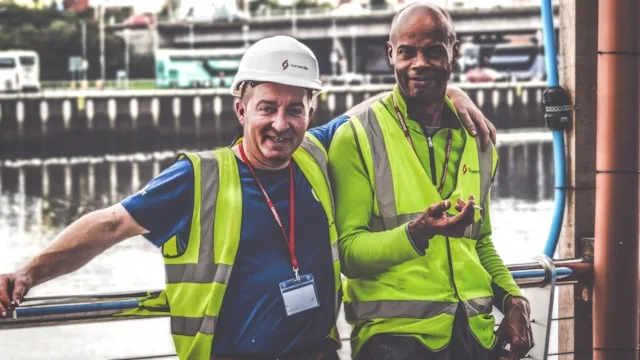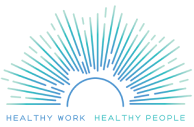The Healthy Work Campaign is pleased to welcome our friend and colleague David LeGrande. David is a 50 year veteran of the U.S. labor movement and for most of that time served as the Occupational Safety and Health Director with the Communications Workers of America. He brings his valuable experience to the HWC as the Labor Outreach Coordinator and Strategist. We look forward to working with him to further the goals of the labor movement; improving worker health and safety and working conditions.
David writes below about the importance of the PRO Act – Protecting the Right to Organize Act that was passed by the House in March 2021 and now sits with the Senate where it is facing significant opposition from Republicans. The right to organize a union is fundamental to healthy work. When workers are encouraged to organize, they are given a “seat at the table” and legal rights to negotiate over working conditions, improving wages, health and safety etc. The Healthy Work Campaign fully supports workers’ right to organize as part of a healthy workplace.
“As a now retired active union member, steward, local union officer, local and international organizer and representative, and national director of occupational safety and health, I really appreciate this discussion. Before and since my activity in the labor movement (initiated in 1969), labor has been advocating and working for more worker-friendly federal, state, and municipal labor laws similar to the Pro Act. Considerable success has been achieved at municipal and state levels- although many states still have right-to-work laws and do not allow collective bargaining/unionization for public workers. However, there has been limited success at the federal level. For example, since the passage of the National Labor Relations Act in 1935, there have been few legislative achievements specific to labor rights.
Historically, labor has made alliances with civil rights, environmental, legal, and left-leaning political organizations to achieve their political goals. However, with notable exceptions, this work has not included a tremendous number of academics and scientists. The principal reason for this has largely been the result of labor and academics/scientists having different priorities. Having said this, there are several topical areas where labor and academics/scientists have a relatively long history of working together. Four that come to mind are occupational and environmental safety and health, collective bargaining, research, and legal work.
Unfortunately, in general, labor and academics/scientists have not developed significant working relationships specific to politics or political change. (The major exception would be those academics/scientists who are active in their union/belong to a union that is actively pursuing improvements in labor legislation). Clearly, the Pro Act and previous labor legislation falls within the area of political action.
What can academics/scientists do to help pass the pro Act?
As the Pro Act is presently being considered by U.S. Congress, it would be tremendously helpful if academics/scientists would call their representatives in both the House and Senate urging passage of the Pro Act. In addition, those academics/scientists who do not belong to a union or are not represented by a union might consider reaching out to a union for the purpose of forming their labor organization. Specific to academics/scientists who are members of or represented by a union, they should encourage their union leadership to place the Pro Act as a top priority (although their union should/may already be working for the passage of the Pro Act).
As a retiree, I remain active within my union, the Communications Workers of America. If you have questions about organizing a union, feel free to let me know. I would be glad to answer questions or put you in touch with my union’s Organizing Department (contact@healthywork.org).”

Who We Are


What We Do

Healthy Work Assessments
For individuals and organizations
Solutions for Employers
Map your plan or book a consultation
Resources for Workers & Unions
Access free resources or schedule a workshop

Why We Do It

What is healthy work?
Learn what it is and what is not
Stats and Infographics
How work stress can harm your health
Business Case
The cost of work stress & why healthy work matters
Educational Media
Videos, interviews and presentations

Ways To Support

Join the Movement
Subscribe to our newsletter
Employer Matching
Build our capacity
Donate
Power our mission
Partner Giving
Extend our reach


≡